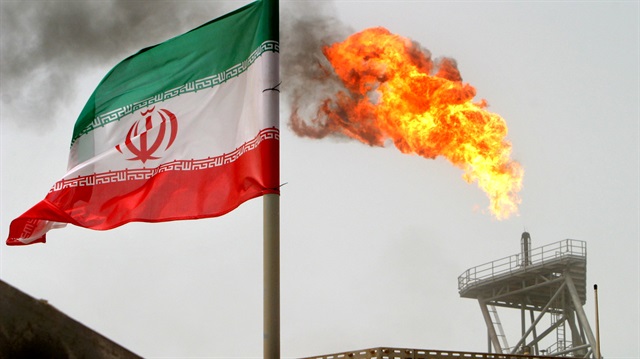
The United States is reverting to sanctions against Iran that existed before the Joint Comprehensive Plan of Action (JCPOA), which was agreed by the Obama administration in 2015. In a letter to then-representative (now Secretary of State) Michael Pompeo in 2015, the Obama administration admitted that the JCPOA is not a treaty and also not even an Executive Agreement.
The only manuscript signatures on the agreement are those of the negotiators (whose functions are not identified as they would be in a regular agreement) on the document's title-page, which look rather like the way birthday cards are signed.
Because the Trump administration is also putting back in place the secondary sanctions against Iran, i.e. sanctions against firms and individuals trading with Iran, the effects will be significant. Despite all the protests by European political figures, the financial and industrial elite know the score.
The threat is that they would lose access to the U.S. banking system, which would mean that they would no longer be able to use U.S. dollars in their international transactions. The Italian energy company Eni has already exited Iran almost entirely, and the French energy company Total will not be participating in further expansion of the South Pars gas field development project.
Iran has recently been putting forward the idea of mediating trilateral gas swaps from Turkmenistan to Georgia and Pakistan. For some years, Iran has been engaging in bilateral gas swaps with Azerbaijan. However, Azerbaijan is a special case that the U.S. administration is not likely to penalize, whereas Pakistan and especially Georgia are not special cases and would likely be affected by the new sanctions. That is because Azerbaijan’s exclave Nakhichevan --sandwiched between Iran and Armenia, with just a few kilometers of border with Turkey--has no option for gas supply other than Iran.
In 2005, Azerbaijan reached an agreement with Iran for relatively small supplies of Iranian gas to Nakhichevan. In 2005, Azerbaijan began exporting small quantities of gas to Iran in return, destined for consumption in the northwestern Iranian provinces where there is significant ethnic Azerbaijani population. These direct trades have continued to the present day.
In 2007, Iran started selling natural gas to Armenia. Beginning at the end of 2008, Georgia began exporting hydropower-generated electricity to Iran via the Armenian electricity distribution network, which is compatible with it.
Iran is now suggesting that Georgia accept, via Armenia, Iranian gas as swaps for Turkmenistan gas exported to Iran (as well as Russian gas through Armenia to Georgia). This would establish a virtual Turkmenistan-Georgia gas trade that would hurt Turkey by imperiling the Trans-Caspian Gas Pipeline, which is a Project of Common Interest of the European Union, scheduled to enter into service in 2021.
In the last five to ten years, Georgia's energy cooperation with Iran has deepened, but now Georgian companies will need to find a way to withdraw from the Iranian market and to exit from that cooperation, including cooperation with Iranian enterprises in Georgia itself.
If they fail to do this, then the companies themselves as well as major Georgian banks may find themselves sanctioned by Washington, which has already let its European friends know that it intends to offer no waivers to the secondary sanctions against European companies dealing with Iran.
Iran's offer to Turkmenistan to swap its gas for Iranian gas to Pakistan likewise endangers prospects for the Turkmenistan-Afghanistan-Pakistan-India (TAPI) pipeline. One difficulty here is that the Pakistani section of the Iran-Pakistan pipeline (once touted as part of the Iran-Pakistan-India or IPI "Peace" Pipeline) has never been begun, much less finished, although Iran claimed to have completed its part up to the border.
Consequently, Iran's offer to Turkmenistan regarding Pakistan is not something that can be put into effect tomorrow. The Pakistani segment of the Iran-Pakistan pipeline has not been built, because no loans for it have ever been given, and there is no way to conceive that it would be commercially profitable.
Gas swaps to Georgia, on the other hand, are politically dangerous for Tbilisi. Georgia's national-security and, indeed, civilizational direction would be too easily put into question, if such cooperation deepened.
Azerbaijan gas swaps with Iran are a special case. Georgia and Pakistan should not expect the West to treat them the same way.














